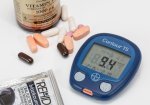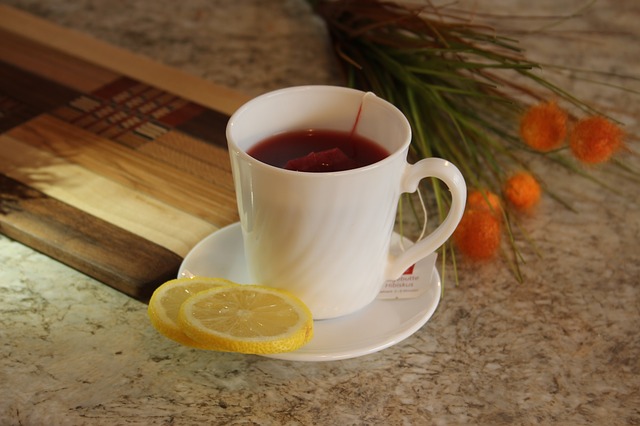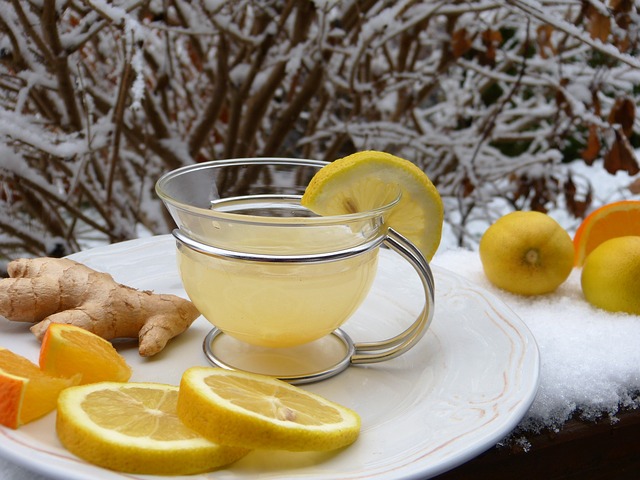Blood Pressure Herbal Tea Ideas
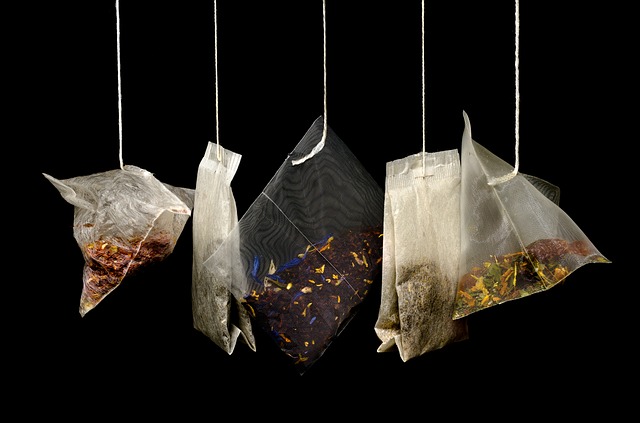
The growing interest in blood pressure herbal tea is part and parcel of a larger interest in the last decade or two in herbal based medicines to treat a variety of ailments affecting a growing number of people. Some reports suggest that between 75% and 80% of the world's population relies on herbal medicines.
The hypotensive and antihypertensive effects of certain herbal teas are supported by scientific evidence showing that they do work in reducing or increasing blood pressure depending on the result desired.
In the western world, the increasing appeal of herbal teas, for example, in treating high blood pressure is due to a number of factors including a desire by many people to avoid the undesirable side effects of the various pharmaceutical medications for blood pressure. Some blood pressure medications carry some serious side effects.
Our research has identified a number of leading blood pressure herbal tea ideas that we think have good enough scientific backing and user feedback indicating effectiveness in lowering blood pressure in hypertensive individuals.
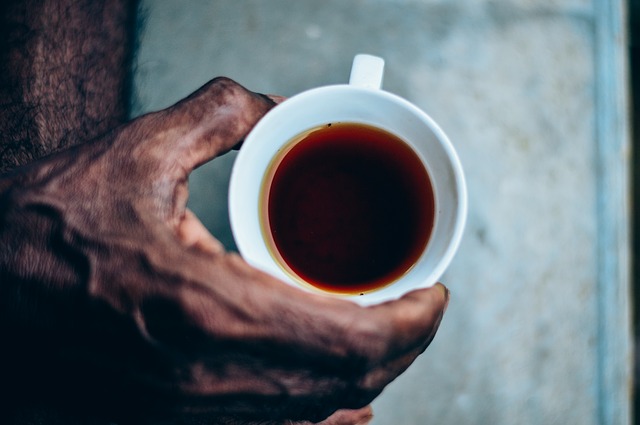
High Blood Pressure Herbal Tea Idea: Hibiscus
The botanical name for Hibiscus is Hibiscus sabdariffa L which is also sometimes shortened to HS. Hibiscus herbal tea which is deep red in color, taking from the hibiscus leaves themselves, is consumed in the Americas, Asia, Europe and Africa. It is a global herbal remedy in the true sense.
There is good scientific support that hibiscus is an effective high blood pressure herbal tea. A study published in the Journal of Nutrition in 2010 discovered that taking 3 cups of hibiscus herbal tea every day lowered systolic blood pressure. These results in the study were recorded following six weeks of drinking the tea.
In animal studies, hibiscus has been shown to consistently lower blood pressure in a dose dependent manner. This is to say, the higher the dose the greater the blood pressure lowering effect.
A 2013 study published in the journal Fitoterapia sharing results of a randomized clinical trial, showed that hibiscus lowers both systolic and diastolic blood pressure in adult participants with pre to moderate essential hypertension.
After using hibiscus as a blood pressure herbal tea in the evenings before going to bed, one individual reported a drop in blood pressure from about 132 mm Hg (top number) over 80 mm Hg (bottom number) to about 102 mm Hg over 70 mm Hg (132/80 mm Hg to 102/70 mm Hg). We have put on the side bar of this page the hibiscus herbal tea recipe for blood pressure that they used to get these results.
The Fitoterapia study states that there is evidence suggesting that hibiscus works as diuretic. Diuretic high blood pressure drugs work by extracting water from the blood vessels which in turn reduces blood pressure. Diuretics therefore increase the passing of urine as a way of expelling water from the body.
Other studies have likened the mechanism used to lower blood pressure by hibiscus herbal tea to how ACE inhibitors work by decreasing the production of angiotensin II which in turn dilates blood vessels leading to the lowering of blood pressure. It is further suggested that hibiscus as a blood pressure herbal tea is nearly as effective as high blood pressure medication captopril but less effective than lisinopril.
In the studies that we find that looked into the use of hibiscus as a natural remedy for a variety of ailments, it was noted that the herbal tea had no serious side effects making it more appealing than regular pharmaceutical drugs. A study published in the Nigerian Journal of Clinical Practice sharing clinical results of a study involving 80 hypertensive individuals who took hibiscus in beverage form over a 4 week period reported no side effects.
However, one individual using hibiscus as a blood pressure herbal tea at home reported coughing at night. This coughing was consistent with known side effects of ACE inhibitors. Earlier, we stated that hibiscus, in some studies, has been found to be similar to ACE inhibitors in its working mechanism.
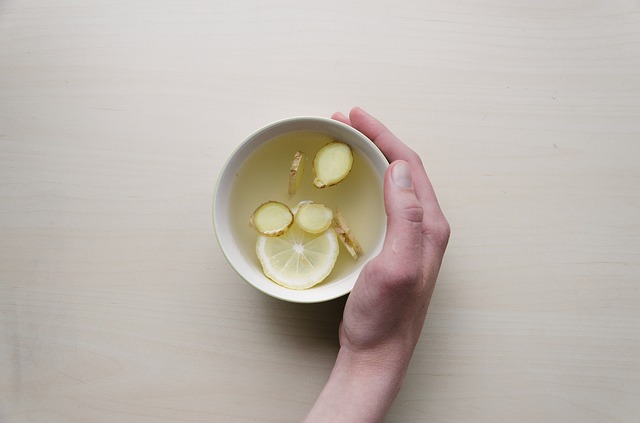
Ginger
While hibiscus herbal tea is one way of lowering blood pressure, ginger herbal tea is another. In strict terms, ginger is a spice. However, when it comes to natural remedies for high blood pressure in beverage form, it is often lumped together with other blood pressure herbal teas.
Also known by its botanical name Zingiber officinale, ginger has a reputation of being an effective high blood pressure herbal tea. Apart from being administered in beverage form, there are a variety of other options including when cooking or simply chewing it as bitter as it can be.
Ginger improves circulation of the blood and relaxes blood vessel related muscles. In one study, ginger extract caused a fall in arterial blood pressure in animal clinical tests. Ginger herbal tea has been shown to have the same effect as verapamil, an antihypertensive drug which falls into the class of calcium channel blockers (CCB).
There are some known side effects associated with the use of ginger such as heartburn, upset stomach and even nausea.
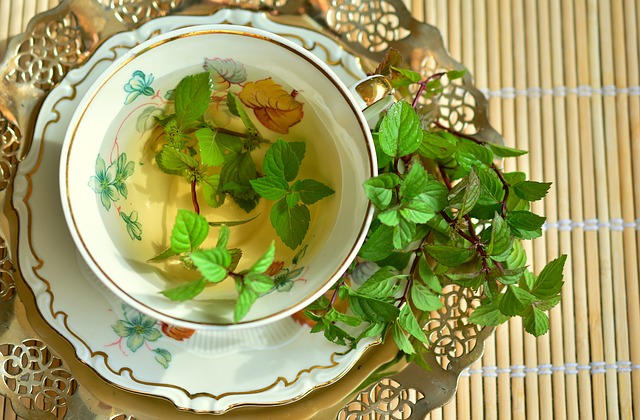
Green Tea
Green tea is a highly regarded blood pressure herbal tea option. It is derived from fermented leaves of a plant known as Camellia sinensis. The tea has been cultivated for hundreds of years in India and China. Today it is also common in other parts of the world. We include green tea among our blood pressure herbal tea ideas because of its well known beneficial effects on lowering high blood pressure.
Traditionally, green tea has been used to treat a variety of human ailments which include cancers, diabetes, inflammatory bowel disease, liver disease and weight loss among a wide range of medical applications. Reducing high blood pressure is only but a part of Green tea's overall available health benefits.
A 2014 investigation published in the journal Scientific Reports shared the results of an extensive meta-analysis of some 13 studies that reported on clinical research involving over 1300 people investigated for the effects of green tea on blood pressure.
The meta-analysis findings indicated that taking green tea consumption significantly reduced systolic blood pressure value by some −1.98 mm Hg. Diastolic blood pressure was reduced by −1.92 mm Hg.
Green tea contains flavanols which are also effective in reducing blood pressure, the reason why dark chocolate is sought after for blood pressure purposes as we fully explain here.
Interestingly, green tea also contains caffeine. What the the journal Scientific Reports published study showed was that a high dose of green tea did not reduce blood pressure. This reason goes back to the link between caffeine and blood pressure which we explain in detail here. Caffeine causes spikes in blood pressure which explains why higher doses of green tea failed to reduce blood pressure any further.
Overall, the meta-analysis study concluded that greet tea does indeed reduce blood pressure.

Black Tea
Like green tea, black tea is a viable blood pressure herbal tea which is also derived from Camellia sinensis leaves. The difference is that black tea is fully fermented. A 2012 study published in Archives of Internal Medicine assessed the effect of regular consumption of green tea on blood pressure.
The study involved men and women whose blood pressure was measured on a 24 hour basis over a period of 6 months in which they took 3 cups of black tea per day. After the full 6 months of taking a total of 429 mg in polyphenols per day as found in black tea, both systolic blood pressure and diastolic blood pressure fell by between between 2 mm Hg and 3 mm Hg.
The mechanism which produces lower blood pressure after drinking black tea was linked by the researchers to black tea effect on endothelial function.
Endothelium represents cells lining blood vessel walls which plays a part in the relaxation of blood vessels allowing for more blood to flow through the vessels thereby reducing blood pressure. It is this under the hood complex biochemical process that to the outside world makes black tea a well sought after blood pressure herbal tea.
Long term black tea consumption reduces blood pressure and is associated with a fall in the prevalence of hypertension among the population equivalent to 10% and a 7% to 10% reduced risk of cardiovascular disease.

| Gingko and Blood Pressure |
Alcohol and Blood Pressure |
Return to High Blood Pressure Remedies from Blood Pressure Herbal Tea
Disclaimer
Information contained on this website is not meant to replace your doctor's advice.
(c) All Rights Reserved. 2010-2018
Drinking hibiscus herbal tea benefits more than your blood pressure but also does this:-
- Cholesterol lowering
- Liver protection
- Menstrual pain relief
- Weight loss
- Lowering body temperature
- Sore throat
- Good for heart disease
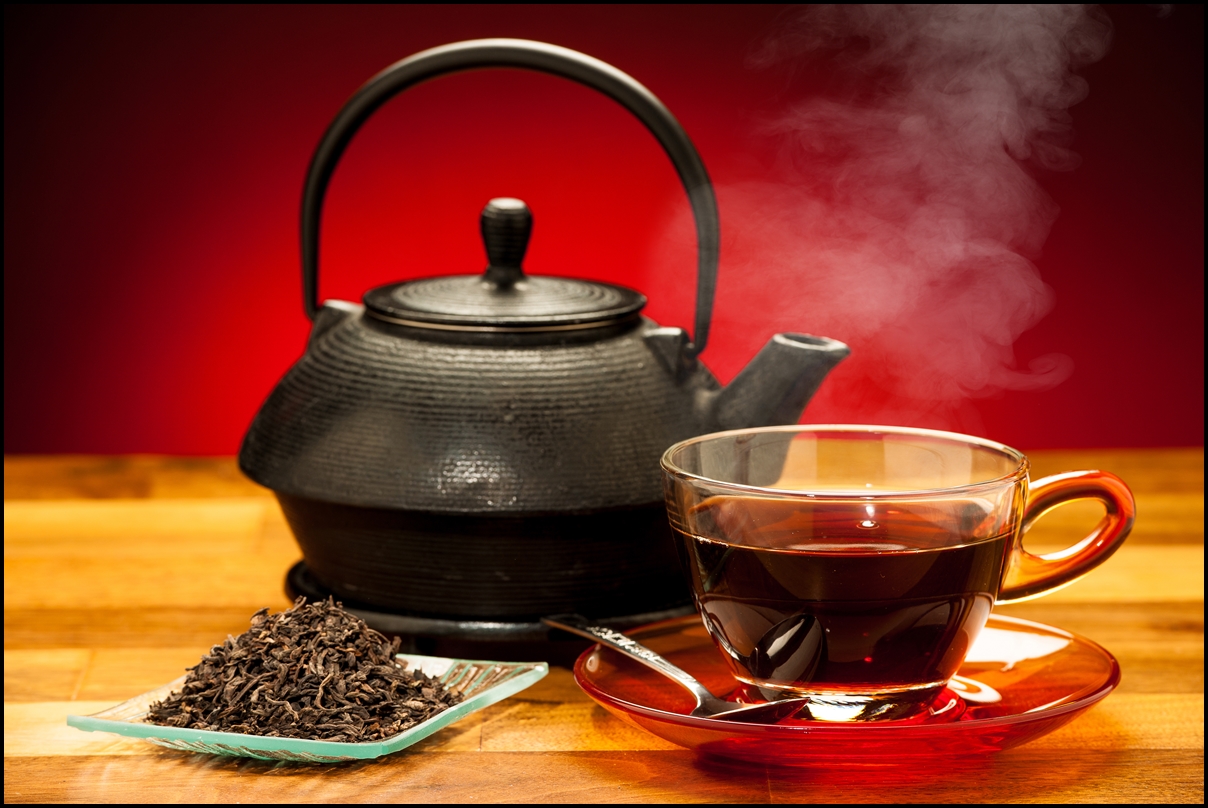
Image credit: ServingJoy.com
Here is a super fast recipe to get you drinking a great blood pressure beneficial cup of black tea
Get This- Tea Leaves – 1 tsp
- Water – 1/2 cup
- Sugar as per taste
- Bring the water to a boil
- Add tea leaves and reduce flame to low
- Stir well and simmer for a minute or two
- Strain and pour into serving cups
- Add sugar to taste
- Serve
Recipe adapted from Awesomecuisine.com
Green tea has some serious health applications beyond blood pressure. Here we go:-
- Improves brain function making you smarter
- Increases metabolism, key to weight loss
- The antioxidants in it help prevent cancers
- Lowers risk of Alzheimer's and Parkinson's
- Kills dental bacteria
- Lowers risk of CVD
- Improves physical perfomance
